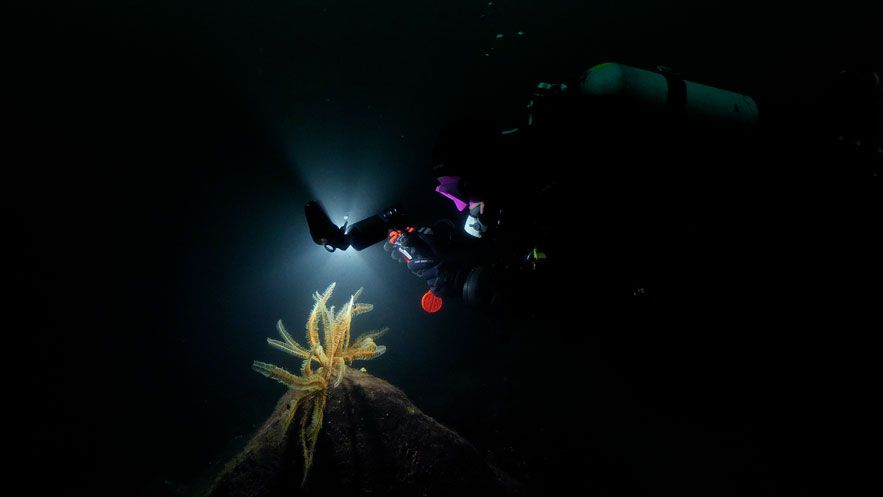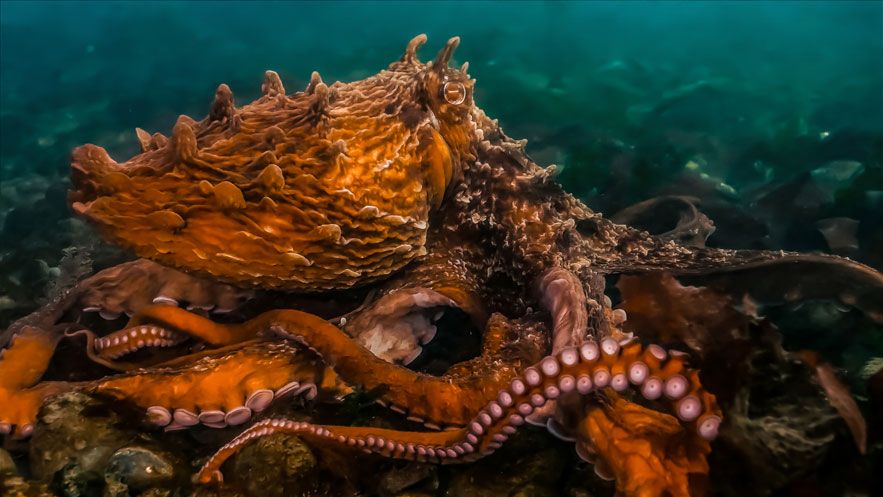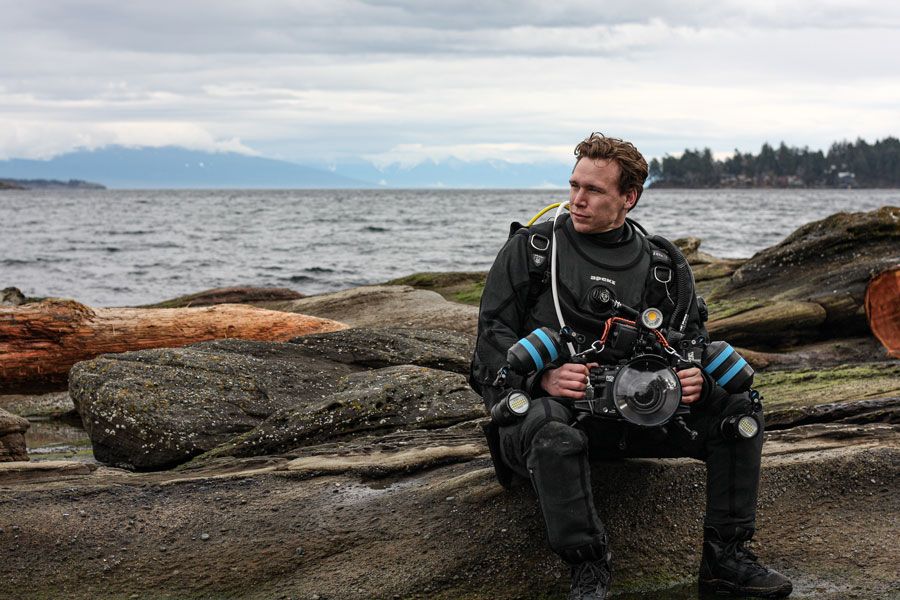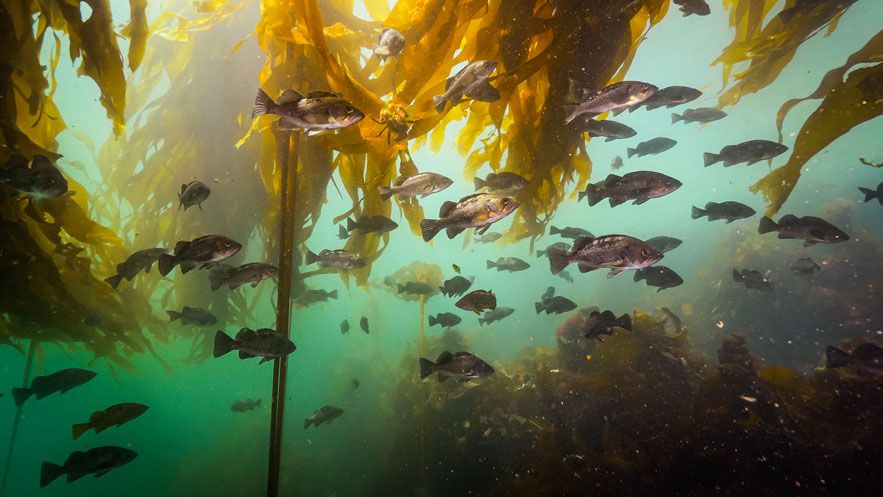In partnership with The Global Goals for #BlueToDo, an initiative raising awareness of the importance of a healthy ocean, Arts Help will publish a series of interviews highlighting artists that combine their creative minds with their passion for the United Nations Sustainable Development Goal of Life Below Water.
John Roney, a native of Vancouver Island, which is known for its rugged West Coast beaches and coastlines, was always drawn to the ocean “because of the mystery of it.”
He began scuba diving in the local waters when he was in his 20s and after his first dive, he was hooked on exploring the mysterious world underwater. This passion for diving has taken him around the world and into the waters of Indonesia, Thailand and Mexico.

Roney is an underwater cinematographer and is currently a full-time film editor for conservation organization Sea Legacy, helping highlight their work in protecting endangered species like the whale sharks, penguins and marine iguanas of the Galapagos Islands.
John uses the power of visual storytelling and video editing to create an emotional connection between people and life underwater to further ocean conservation efforts.
“It’s about finding a compelling story. As a video editor, I have the opportunity to weave a story and reel audiences in by immersing them in a theme and introducing them to an animal in an engaging, endearing way,” says Roney.
He recounts editing footage taken on the Galapagos Islands by Sea Legacy founders Paul Nicklen and Cristina Mittermeier.
“They were capturing some incredible footage of these flightless cormorants on the Galapagos Islands. These are birds that have lost the ability to fly through evolution because they don’t have natural predators on the island. They’re only found in this one part of the world. I had a great time editing that sequence because each cormorant had so much personality and finding the funny, personable moments allows audiences to connect with these animals.”
Capturing the personalities of animals and telling their stories is one of the ways Roney connects with audiences. He shares a special experience he had getting up close to a giant Pacific octopus.

“The first time I ever encountered a giant Pacific octopus was when I was diving on the East Coast of Vancouver Island. I went down there and looked into this giant cavern in the rockface underwater, and these eyes were staring back out at me. The octopus climbed out and started reaching out and it was clear that this was an intelligent animal. I could feel an individual looking back at me. And it was a massive creature with suckers the size of my palm. That changed my entire perspective.”
Roney’s unique perspective of life underwater is one that many of us on land will never experience, which makes us less aware of the impact we have on our oceans.
“I remember going diving in Indonesia and seeing how much plastic was floating in the ocean. I saw the impact of single-use plastic and oil spills up-close. I’m now thinking twice about using a plastic bag in the grocery store and am choosing to live life more sustainably,” he says.
Through visual storytelling, Roney can show audiences the underwater ecosystems that need protecting through film. Cold and murky water conditions makes scuba diving in the Pacific Northwest challenging. Thus, many locals on Vancouver Island are not able to see what needs protecting in their local waters.

“It’s one thing to tell somebody that our sea life is being threatened. It’s another thing for them to be able to identify with it up close and personal. These films and the underwater footage are ways for anyone to be able to appreciate life underwater,” says Roney.
When asked why he thinks people should learn and care more about life below water, Roney references a quote from environmentalist James E Lovelock: “How inappropriate to call this planet Earth, when clearly it is Ocean,” referencing how nearly three-quarters of the Earth’s surface is sea.
“If we’re serious about tackling climate change, we’ve got to protect our ocean. That’s key,” says Roney.
Roney has a particular interest in kelp forests, an underwater ecosystem that is an important habitat for marine species. Kelp forests also help mitigate the effects of climate change by absorbing carbon in the ocean and atmosphere.

“I’ve noticed how areas I used to dive in that were once kelp forests are now urchin barren (the destructive grazing of kelp forests by sea urchin caused by human interference in marine ecosystems). There are no more kelp forests which are super crucial for certain species to reproduce as they’re critical nurseries for their young. Knowing that humans are responsible because of overfishing and unsustainable harvesting has made me more aware,” says Roney.
“You see how interdependent and interconnected everything is in the ocean. If you lose the kelp forests, you lose the salmon. If you lose the salmon, you lose the orcas,” he says on the underwater habitat destruction caused by human activities.
Roney is currently working on a short film for younger audiences on marine life and the importance of restoring kelp in the Salish sea.
You can check out more of John Roney’s work on his website or on his Instagram.
